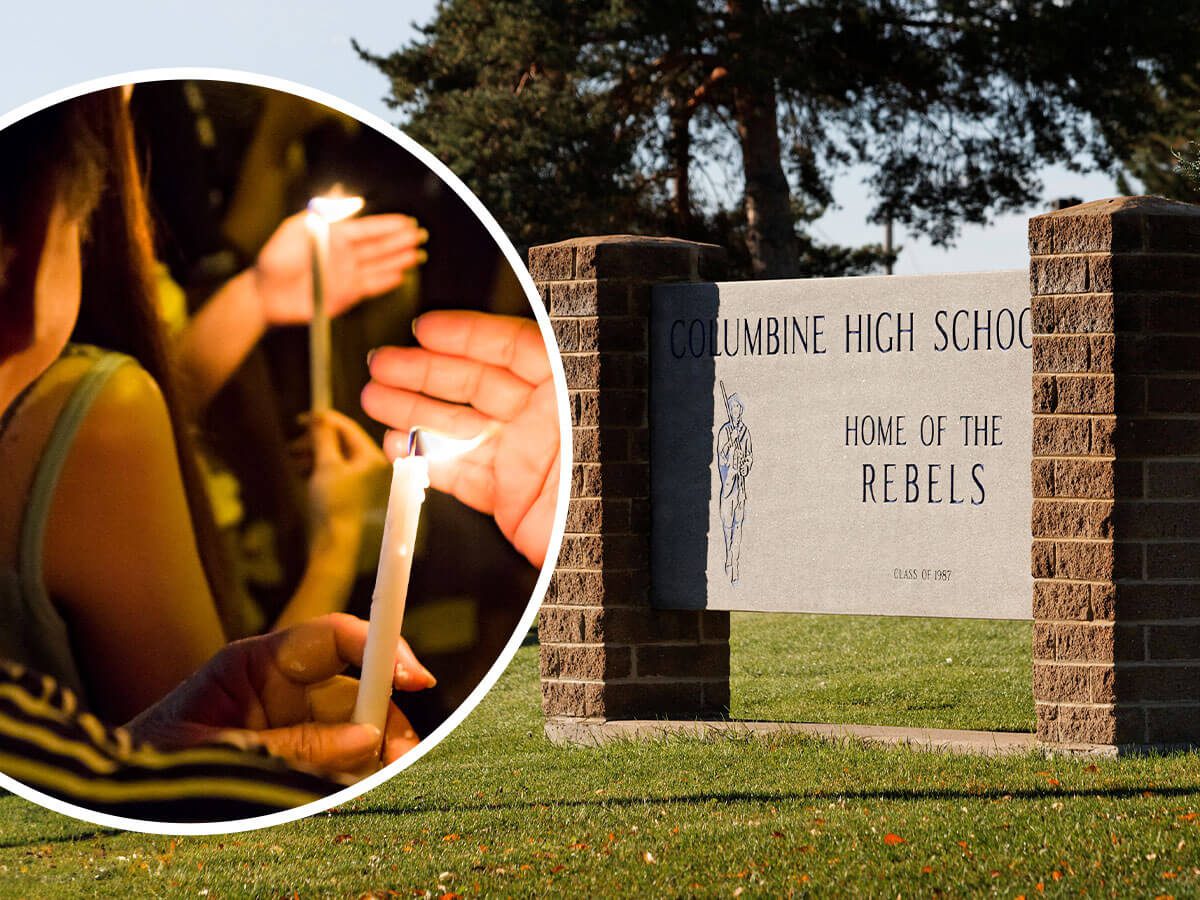
April 20th was the 25th anniversary of the Columbine school shooting in 1999, where 12 students and a teacher were murdered while 21 additional students suffered injuries from gunshot wounds and 3 were injured in the chaos. It was the deadliest school shooting in America at the time and opened up conversations about mental health, the impact of media violence on adolescents, and gun control. Columbine survivor Craig Scott was sixteen at the time when gunmen Eric Harris, 18, and Dylan Klebold, 17, entered the Columbine High School library, armed to kill. Although Scott didn’t know it at the time, they had already killed his sister, Rachel Joy Scott. She was the pair’s first victim.
Scott was hiding under a desk when the gunmen entered. Speaking with ABC News, he recalled the scene. “They came over to where I was. They saw my friend, Isaiah [Shoels]. At my school, Isaiah was one of the very few African American students. One of them called the other one over and started to call Isaiah racial slurs. They tried to drag him out from under the table. And they shot and killed Isaiah, shot and killed my friend, Matt. They left me under there. I thought I was going to die,” he recalled. Speaking to CBN in preparation of the anniversary, he shared how God spoke to him. “I heard God speak to me. And I am careful even with that phrase, ‘God told me to do something.’ … But I felt very strongly [that He] told me to, ‘Get out of there.’” Despite not knowing where the shooters were, Scott stood up from his hiding place and told other students to get out as well. 10 students were killed in the library that day.
Despite the tragedy, Scott has spent the last twenty-five years speaking about his experiences and how God can use tragedy and pain. “[It] has been one of the biggest, helpful things in my journey the last 25 years, this belief that God has a plan and a purpose for even the worst stuff,” he told CBN. Scott and his family have shared Rachel’s story of faith, including journals she kept in the days leading up to the attack. Her story has also been documented in numerous books and the movie “I’m not Ashamed.” Scott travels the world as a representative of the non-profit his family created, Rachel’s Challenge. He will also be starting a new podcast, “Pain into Purpose,” which will share inspirational stories.
He shared how he was able to move on after the attack. “The biggest factors of my healing were my family, my faith, but also forgiveness. For a couple years, I used to fantasize about killing the shooters. I used to hate them,” he said. “As I was beginning to travel and share my sister’s story, I was meeting people who had been through far worse than I had been and they weren’t these angry, bitter people. They were very free and open. And someone told me once, it was very helpful, that ‘forgiveness is like setting a prisoner free and finding out that prisoner is you.’” He added how going through his sister’s journals also helped him. “She had a deep belief that she would have a positive impact and she has. When I survived, I think I immediately felt this deep sense that God had a purpose for me. Whether people have that belief or not, that belief helped me and it’s helped me since to believe that there was a deep reason for why this has happened. And I was able to see through the tragedy to purpose.”
